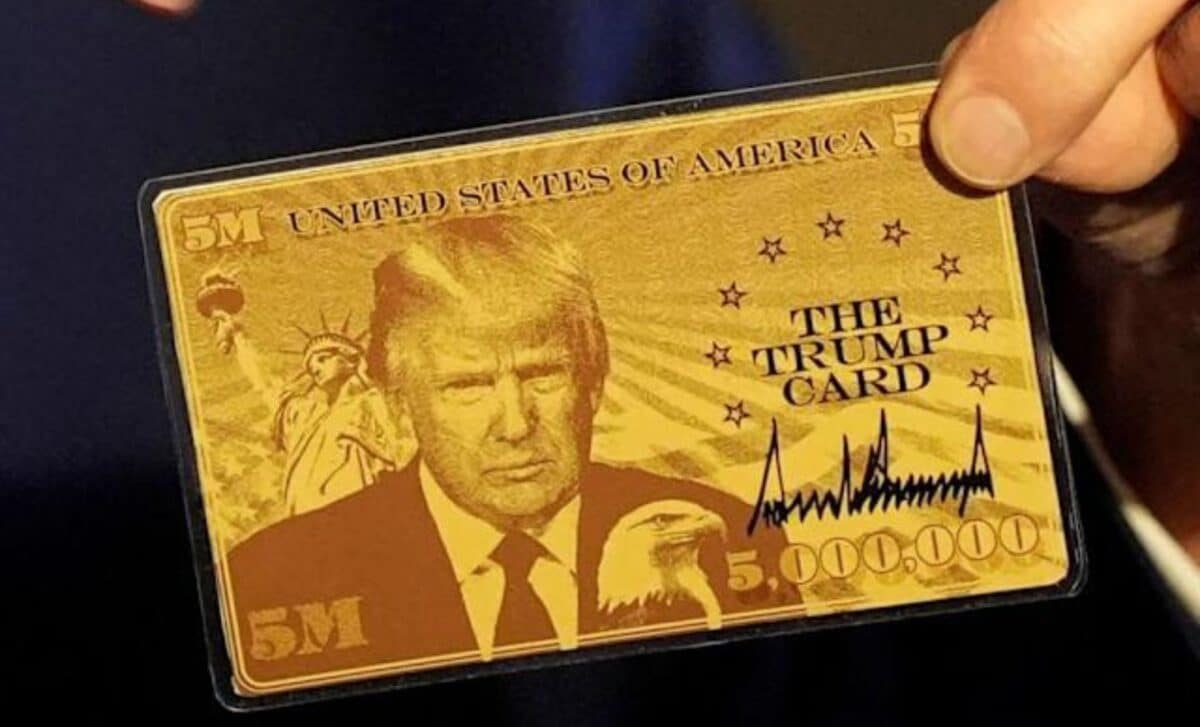In the midst of a market downturn spurred by his latest trade tariffs, President Donald Trump has introduced a new initiative aimed at attracting wealthy immigrants to the United States.
The so-called “Gold Card” offers U.S. residency for $5 million, a proposition that directly targets high-net-worth individuals seeking to invest in the country’s future.
The card, which features Trump’s own image, is being presented as a more streamlined alternative to the existing EB-5 immigrant investor visa program.
A Strategic Immigration Proposal
The $5 million Gold Card is part of Trump’s broader strategy to overhaul the U.S. immigration system. According to Trump, the card would replace the EB-5 visa program, which allows wealthy foreign nationals to secure U.S. residency through investment.
The new card not only grants residency but also exempts holders from U.S. taxes on their overseas income—a key attraction for the ultra-wealthy.
In a conversation with reporters, Trump described the Gold Card as an “exciting” new opportunity for affluent immigrants, suggesting that it would bring substantial economic benefits to the country.
While the specifics of the program remain unclear, Trump’s comments suggest that the initiative will generate significant revenue. Commerce Secretary Howard Lutnick, in a separate announcement, revealed that 1,000 Gold Cards would be made available for sale, potentially raising $5 billion in a single day.
Economic Concerns and Market Reactions
Trump’s new Gold Card proposal has been introduced during a period of heightened economic uncertainty. The U.S. markets, already rattled by his recent announcement of global tariffs, experienced a significant decline, with the S&P 500 dropping by 4.8%.
According to analysts, these tariffs—intended to target imports—are expected to raise prices for U.S. consumers and discourage investment. The President’s assertion that tariffs would only benefit the U.S. has been met with skepticism, with critics arguing that it will instead harm American businesses and consumers.
The financial market response to Trump’s trade policies has been swift, with both Asian and European markets also pulling back. Despite these concerns, Trump remains confident that his economic strategies will eventually pay off, claiming that foreign investment will flood into the U.S. in response to his policies.
However, the broader economic impact of both the tariffs and the new Gold Card initiative will likely remain a topic of debate in the coming months.









